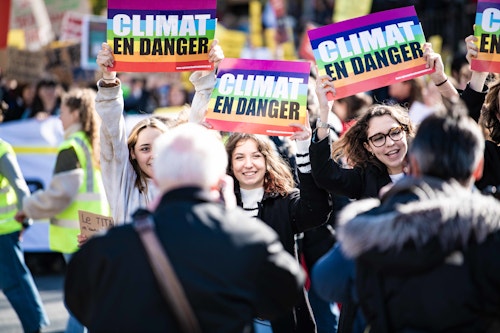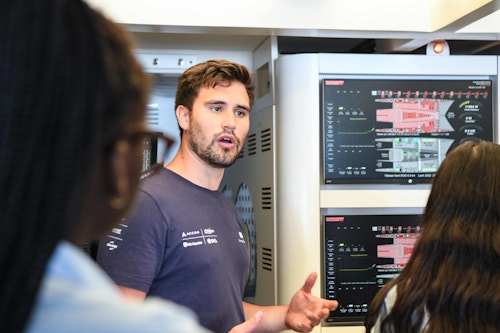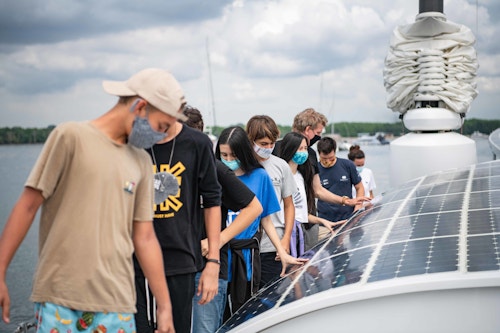Today, 1.2 billion people are between 15 and 24 years old. That accounts for 16% of the world's population. Constantly growing[1], youth often act on the margins of political, economic, and social opportunities and are out of step with public action. Young people often declare themselves wrongly represented by the political class.
Others firmly commit to parties, associations, or NGOs in climate activism that does not go unnoticed. Some speak out publicly on visible and mediatized occasions, such as during several high school graduation ceremonies last spring.
The slogan #NothingAboutUsWithoutUs expresses a part of the youth's expectations to benefit from progressive opportunities and to act in the service of society and the planet. Used by many committed young people, activists, or militants, it expresses the idea that no policy should run without the direct participation of the concerned people.
Sometimes presented as idealists, not very pragmatic, and unable to understand the realities of the world, youth perceive themselves as having been reduced to a caricature, without impact or role in society. However, young people are essential actors of change; their ideals, energy, and will to change are all indispensable elements to the world around them.
If young people are undeniably a powerful source for development, they must hold the knowledge and skills to inform themselves, train themselves, and serve their country and the climate cause. However, there are still glaring disparities across the world today in one's education and among the opportunities offered to youth. It is therefore essential that everyone can benefit, in an equitable manner, from an education that allows everyone to contribute fully to a more sustainable and just world.
This International Youth Day is an opportunity to recall the role of young women and men as agents of change and to highlight the difficulties they face along the way.
Learn, understand, transmit, exchange, share: such is the ambition of Energy Observer Foundation, which brings a large public to be aware of the environmental challenges of our time.
On board Energy Observer's laboratory vessel or within our educational exhibition system deployed during some of the international and French stopovers, we aim to offer young people the opportunity to discuss the ecological transition, its challenges, and the role of hydrogen in accelerating the energy transition, with the crew and the teams ashore.
Inspire, convey the desire to be involved, to have an impact, and open perspectives on future jobs. That is Energy Observer Foundation's most important mission: to offer youth the keys to understanding to design desirable futures by being in contact with a team that develops innovative and sustainable solutions. This action seems essential for young people's growth to allow them to understand, share, and raise awareness, to act and move the lines today and tomorrow.
[1] The United Nations predicts that the number of young people aged 15 to 24 will increase by 7% by 2030.




